When you start driving through the unknown and beaten paths, you may come across an unknown obstacle and get yourself stuck. What next? Surely, you can wait for your buddy to come to the rescue – but what if that isn’t an option? Well, then, my friend, the only savior you should have at hand is the Best Off-road Winch. So, today, I will share my thoughts and ideas on the winch range to pick.
Best Offroad Winch for Jeep and Truck
| Product | Short Description |
|---|---|
|
Expert’s Choice
Smittybilt X2O Winch for Jeep and Truck |
|
WARN VR EVO 12 Winch for Jeep and SUV |
|
X-BULL 12V winch for 4WD 4×4 Off Road Vehicle |
|
WARN Zeon Platinum 12 Jeep and Truck Winch |
|
Buyer’s Guide: Choosing the Best Offroad Winch
An offroad winch is a crucial piece of equipment for any offroad enthusiast or outdoor adventurer. Whether you’re tackling rugged terrains, exploring remote areas, or simply need a reliable recovery tool, a winch can be a lifesaver. However, with so many options available in the market, it can be challenging to determine which offroad winch is the best fit for your needs. To help you make an informed decision, here is a buyer’s guide outlining key factors to consider when choosing the best offroad winch:
Winch Capacity
The winch capacity refers to the maximum weight it can pull. Consider the weight of your vehicle and any potential additional loads, such as trailers or cargo. Select a winch with a capacity that exceeds your vehicle’s weight to ensure it can handle various recovery situations.
Line Length and Diameter
The length and diameter of the winch line are essential factors to consider. Longer lines allow for more flexibility in recovery situations, especially when an anchor point is far away. Opt for a winch with a minimum line length of 80 feet (24 meters) to handle different scenarios. Thicker lines are generally stronger and more resistant to abrasion, but they may require larger winch drums. A common diameter is 3/8 inches (9.5 mm), but thicker options are available for heavy-duty applications.
Winch Type
There are two primary types of offroad winches: electric and hydraulic. Electric winches are more popular due to their versatility, ease of installation, and affordability. They are powered by your vehicle’s battery and offer a wide range of pulling capacities. Hydraulic winches, on the other hand, rely on your vehicle’s power steering pump or a separate hydraulic system. They provide consistent pulling power but are more expensive and require additional installation steps.
Motor Power and Line Speed
The winch’s motor power determines its pulling capability, while line speed affects how quickly the winch can retrieve the line. Look for a winch with a high horsepower (HP) rating for increased pulling power. Similarly, a winch with a faster line speed will recover the line more quickly, reducing the time spent in recovery situations.
Winch Construction and Durability
Offroad winches are exposed to harsh environments and rigorous use. Ensure the winch you choose is built with durability in mind. Look for winches constructed with robust materials such as steel or aluminum, as they provide strength and resistance to elements. Additionally, features like corrosion-resistant finishes and sealed motors contribute to the longevity of the winch.
Control Options
Consider the available control options for operating the winch. The two common types are wired and wireless controls. Wired controls offer a reliable connection but may limit your range of movement. Wireless controls provide convenience and flexibility, allowing you to operate the winch from a safe distance. Some winches may also offer additional control options such as smartphone apps or remote control integration.
Mounting System
Ensure that the winch you select is compatible with your vehicle’s mounting system. Some winches come with a universal mounting plate, while others may require a specific mounting kit or bumper. Check the winch’s dimensions and mounting requirements to ensure a proper fit on your vehicle.
Safety Features
Safety should be a top priority when choosing an offroad winch. Look for winches that offer features such as automatic load holding brakes, which prevent the winch line from slipping. Additionally, consider winches with thermal protection to prevent overheating during prolonged use.
Brand Reputation and Warranty
Research the reputation of the winch manufacturer and read customer reviews to gauge the quality and reliability of their products. A reputable brand often signifies
Final Thoughts
Whenever you decide to escape from the hectic life of a modern city, the best way to do that is to unite with nature. All it takes is to pack your bag, get into the truck and get going. If you are a dedicated off-roader like I am, the chances that you will prefer the safety of a highway to the thrill of unexplored terrains are slim. Otherwise, you wouldn’t have gotten the huge truck, would you?
Off-roading is a fun thing to do if you are fully set for the journey. Even an inexperienced adventurer should be aware of the lurking dangers. If you think that a flat tire is the only thing to worry about – how about getting stuck with no one to help you out? Sounds scary, but there’s an easy way out. All you need is a good winch at hand. Besides, the little but potent accessory brings along additional perks and is surely worth the investment. No matter your goals, preferences and budget – there’s a reliable option to consider mentioned in the list above.
FAQ – The Best Off-road Winch
What is a winch for off-road?
An offroad winch is a powerful mechanical device designed to assist in vehicle recovery and pulling operations when a vehicle is stuck or stranded in offroad conditions. It consists of a motor, a spool, a steel cable or synthetic rope, and a remote control.
Why do I need an off-road winch?
Offroading can often involve challenging terrains and situations where vehicles may get stuck. An offroad winch can provide a reliable means of self-recovery or helping others in such situations. It offers a reliable pulling force to extract your vehicle from mud, sand, steep inclines, or other obstacles.
What factors should I consider when choosing the best off-road winch?
When selecting the best offroad winch, consider the following factors:
- Load capacity: Choose a winch with a capacity that matches or exceeds the gross vehicle weight (GVW) of your vehicle.
- Line length and strength: Ensure the winch has an adequate length and strength of the steel cable or synthetic rope to reach suitable anchor points.
- Motor power: Look for a winch with a motor that delivers sufficient power for the weight of your vehicle and the terrain you intend to navigate.
- Water resistance: Opt for a winch that is rated to be waterproof or water-resistant, as offroading often involves exposure to water and mud.
- Winch type: Decide between an electric winch, which is more common and easier to install, or a hydraulic winch, which provides constant pulling power but requires additional components.
- Brand reputation and warranty: Consider reputable brands known for quality winches and check the warranty provided.
How do I install an offroad winch on my vehicle?
Winch installation typically involves mounting the winch onto a winch mount or winch-ready bumper on the front of your vehicle. The process may vary depending on your vehicle model and winch type. It is recommended to consult the winch manufacturer’s instructions or seek professional assistance for a proper installation.
What is the difference between a steel cable and a synthetic rope for a winch?
Steel cables are durable, strong, and resistant to heat, but they can be prone to kinks and are heavier. Synthetic ropes, usually made of high-strength materials like Dyneema, are lightweight, flexible, and safer to handle due to their lack of recoil. They also float on water. However, synthetic ropes may require more frequent inspection and replacement compared to steel cables.
Can I use an off-road winch for other purposes?
While offroad winches are primarily designed for vehicle recovery, they can also be utilized for other applications, such as pulling heavy objects, clearing debris, or assisting in certain construction or agricultural tasks. However, always ensure that you operate the winch within its specified load capacity and follow the manufacturer’s guidelines.
How often should I maintain my off-road winch?
Regular maintenance is essential to ensure the proper functioning and longevity of your offroad winch. It is recommended to clean the winch after each use, inspect the cable or rope for signs of wear or damage, and lubricate the moving parts as per the manufacturer’s instructions. Additionally, check the electrical connections and ensure they are secure.


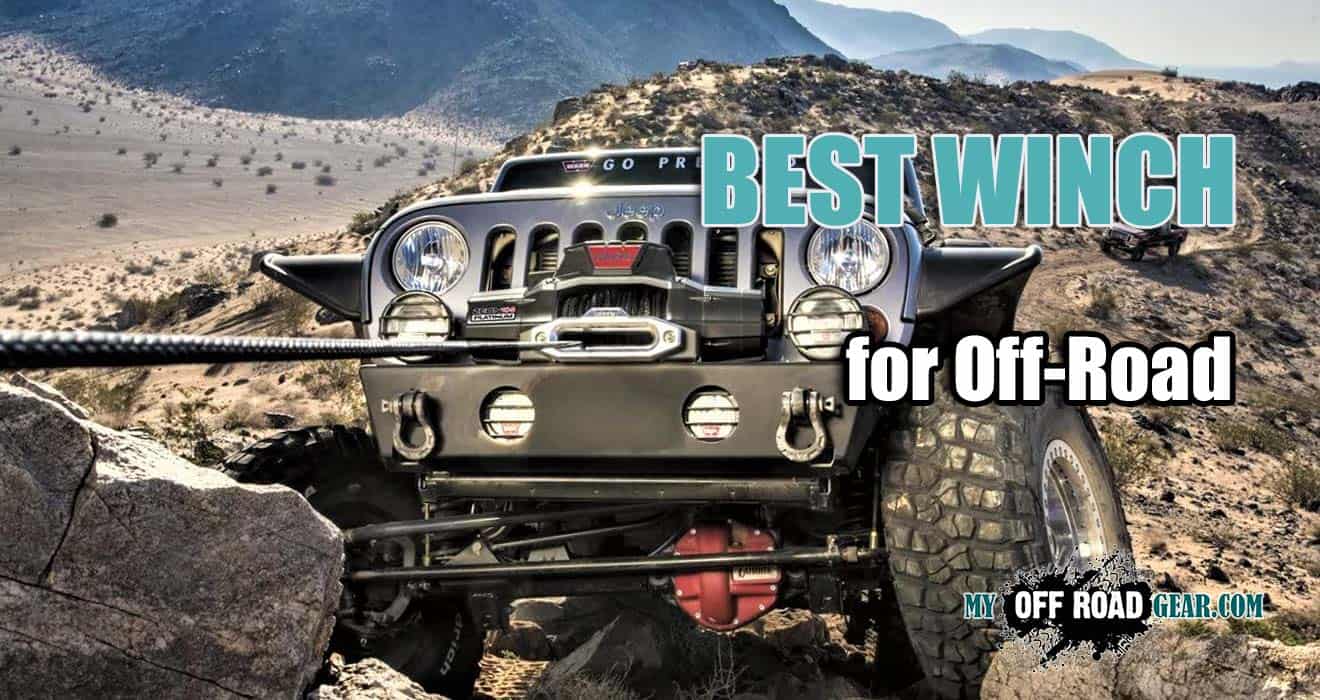
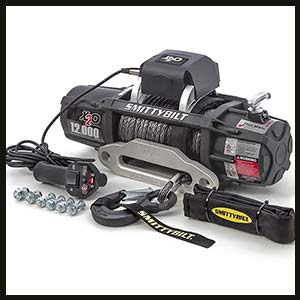
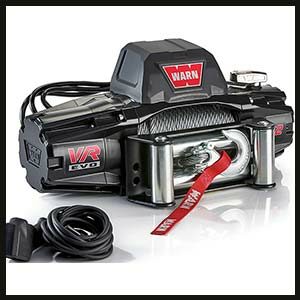
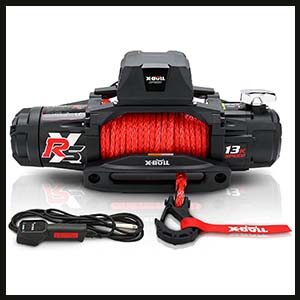
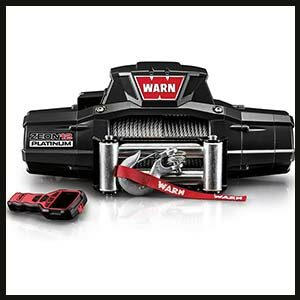
Add Comment